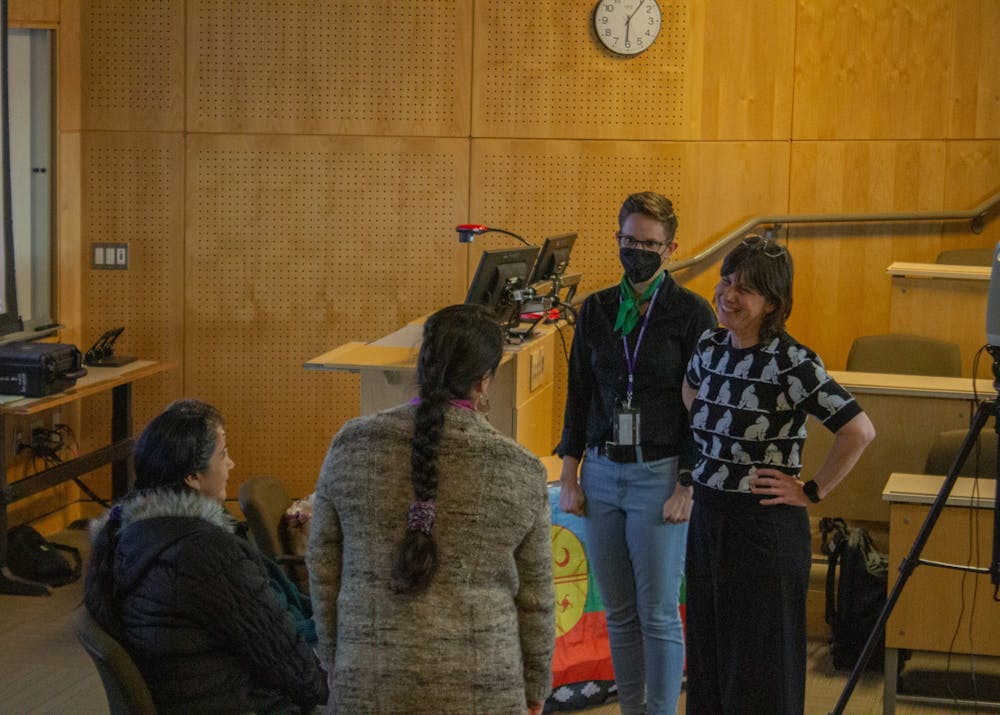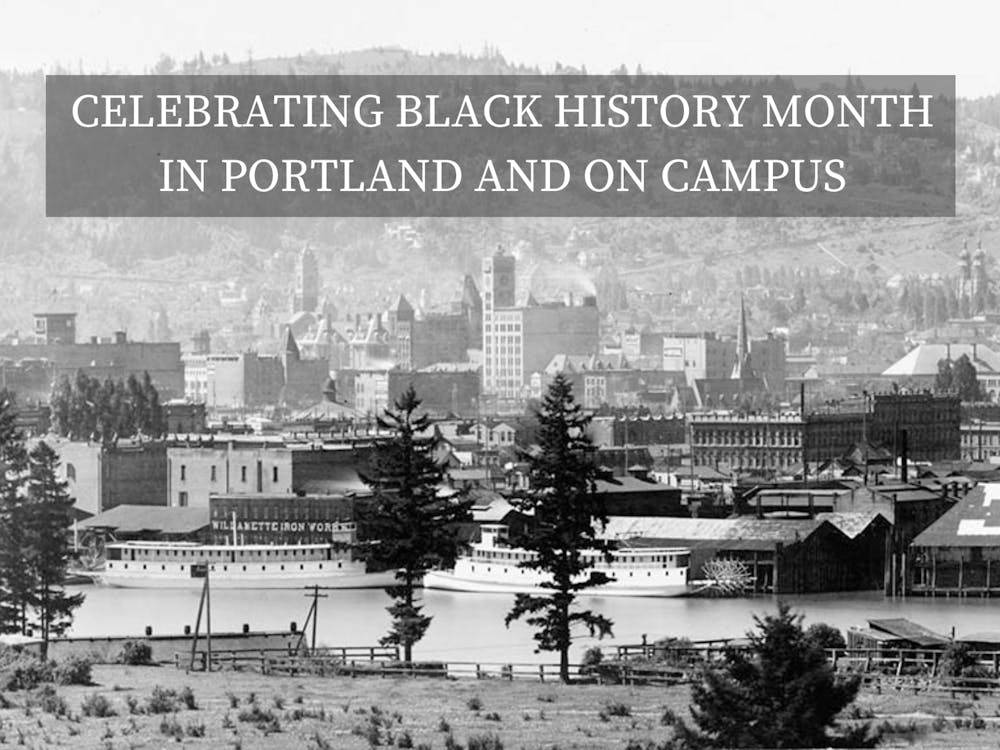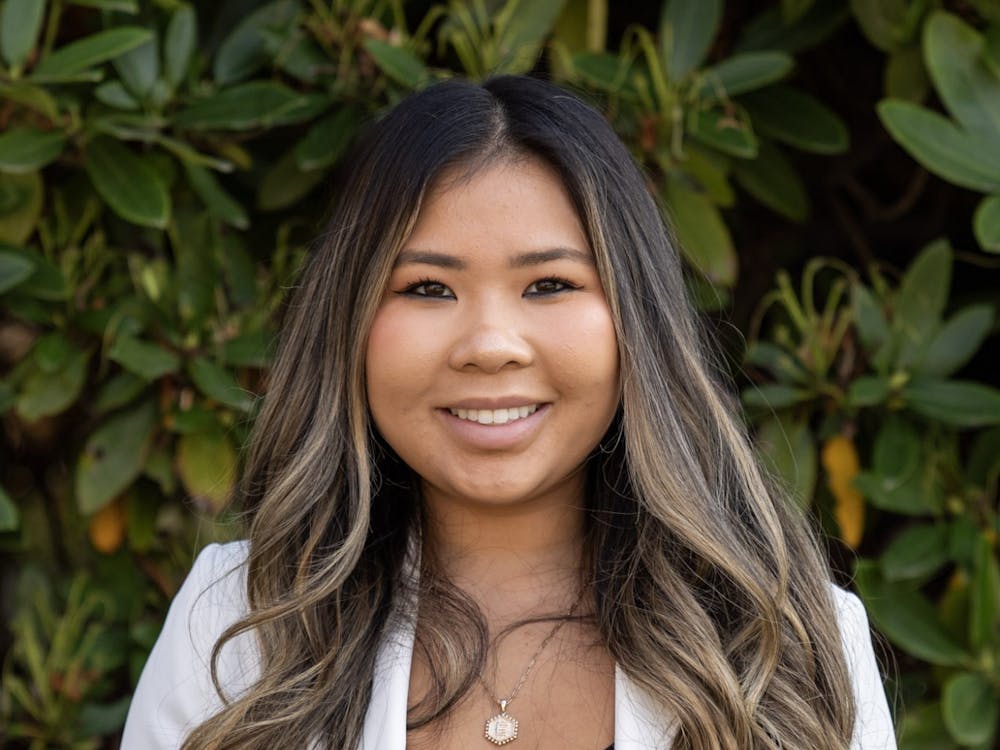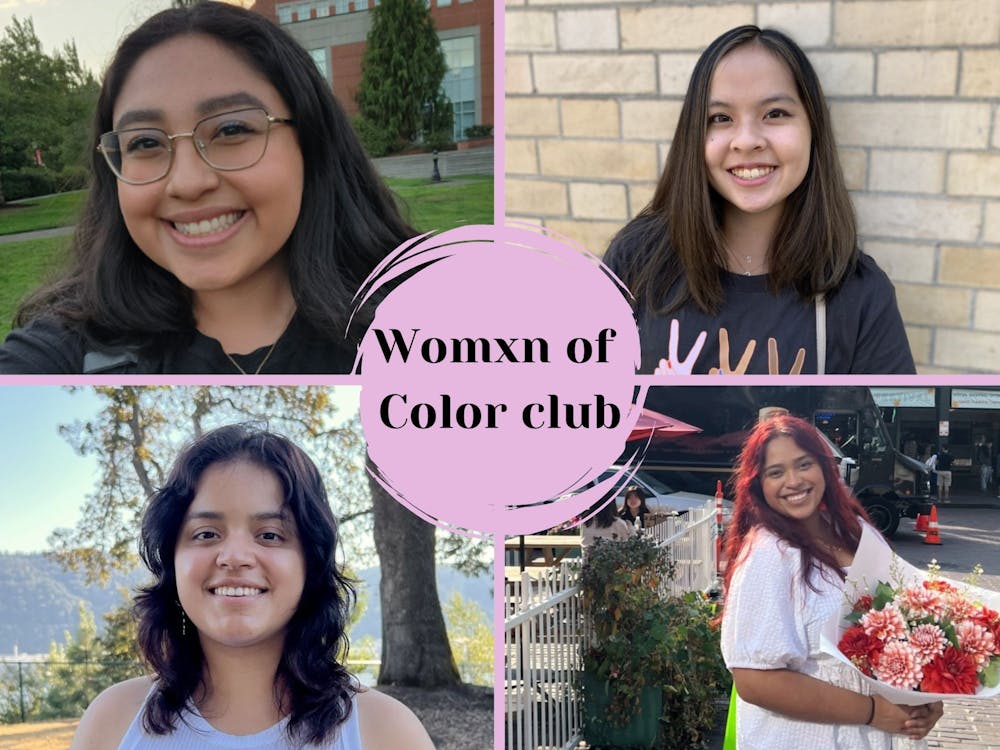The Mapuche Speaking Tour paid University of Portland a visit for a screening of a documentary by filmmaker Kelly Baur and a discussion on the Mapuche land reclamation and language revitalization movements on March 22. Mapuche activists Carolina Kürrüf Poblete and Silvia Calfuqueo Leifo were in attendance. The event was hosted by the Womxn of Color Club, the Social Justice minor program and the Ethnic Studies program.
The Mapuche Speaking Tour has been presenting on these social justice movements at universities and linguistics conferences.
“The main purpose of that is to really do some public education around the Mapuche issue and also inspire people to get involved where they’re at as well,” Baur said.
Baur acknowledges the large distance between Portland and Chile, which presents a challenge to UP students who wish to get involved in the Mapuche social justice movements. She encourages students to find opportunities in local activism.
“My suggestion is to go look and see what groups exist and what you’re interested in and find a way to connect and start organizing with any group around any issue,” Baur said. “Then you’ll have the tools to engage with things on a larger scale.”
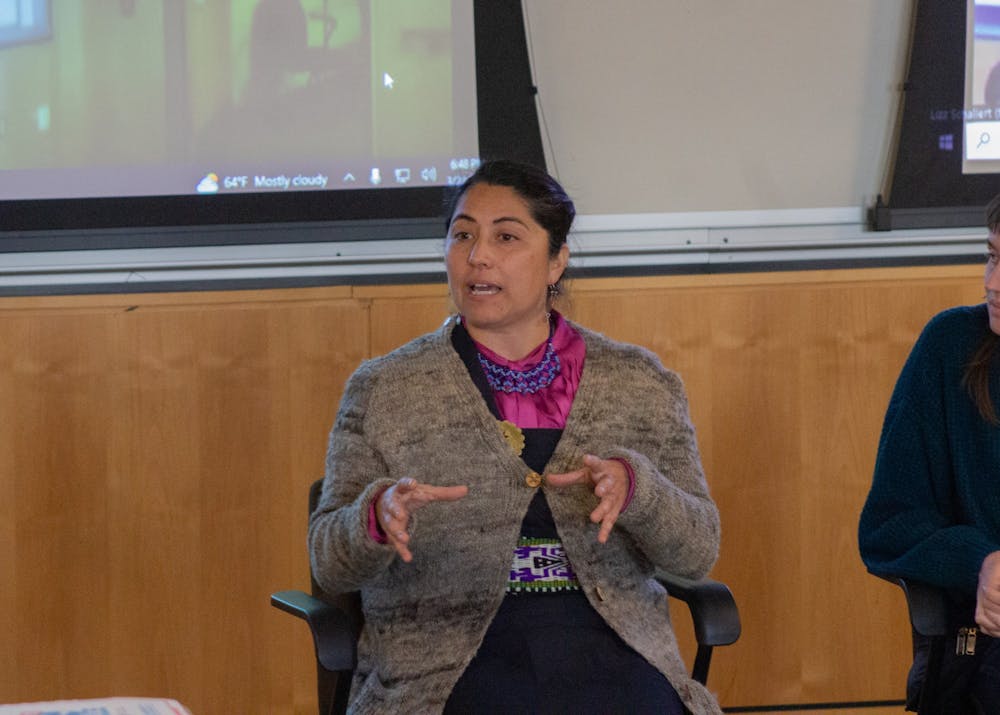
It was Baur’s connection with UP social work professor Lizz Schallert that brought the Mapuche Speaking Tour to UP. The two of them met doing community organizing and Latin American solidarity work together. When Schallert learned of the speaking tour, they jumped at the opportunity for them to visit UP.
“It just felt like a valuable opportunity to bring something that is material about decolonization here on campus and to bring the Mapuche struggle here,” Schallert said.
Noticing the symbolic use of land acknowledgements and talks on decolonization in education, Schallert felt that more needed to be done to help change the material conditions for Indigenous people.
“And so for me, an interest around the conversations of decolonization is shaping material realities,” Schaller said. “Hearing from actual indigenous folks that are reclaiming power, and hearing about tangible struggles that are not just symbolic.”
Schallert reached out to the Womxn of Color club to help organize and promote the event.
“I thought it would just be a good opportunity to raise awareness for an issue, especially one that we aren’t really closely connected to, I think, here on campus,” Cindy Garibay, co-president of the Womxn of Color club said.
The documentary shown at the event was called "Weichanmu: we are going to war" and was created by Baur. It follows the first year of the Mapuche land reclamation movement in 2013-2014, focusing on a small Mapuche community in Chile.
The Mapuche land reclamation movement centers around the Mapuche people reclaiming the land that the Chilean state pushed them out of. Much of that land is now owned by Chilean forestry companies and the Mapuche people are fighting to protect the biodiversity.
“All of the land has been deeply degraded by these monocrops of tree plantations, but also very foreign or nonnative species,” Kürüf Poblete said, “That’s also part of the reason that this issue, the struggle has started to involve people not just who are Mapuche, but also Chilean people as well who see the need for biodiversity in order to sustain life.”
These movements are not only focused on reclaiming Mapuche land, but also revitalizing the Mapuche language Mapuzugun, which has been declared definitely endangered by UNESCO. As leaders in the language revitalization movement, Kürüf Poblete and Calfuqueo Leifo focus on teaching Mapuzugun to Mapuche youth and immersing them in their culture so they know of their Mapuche identity.
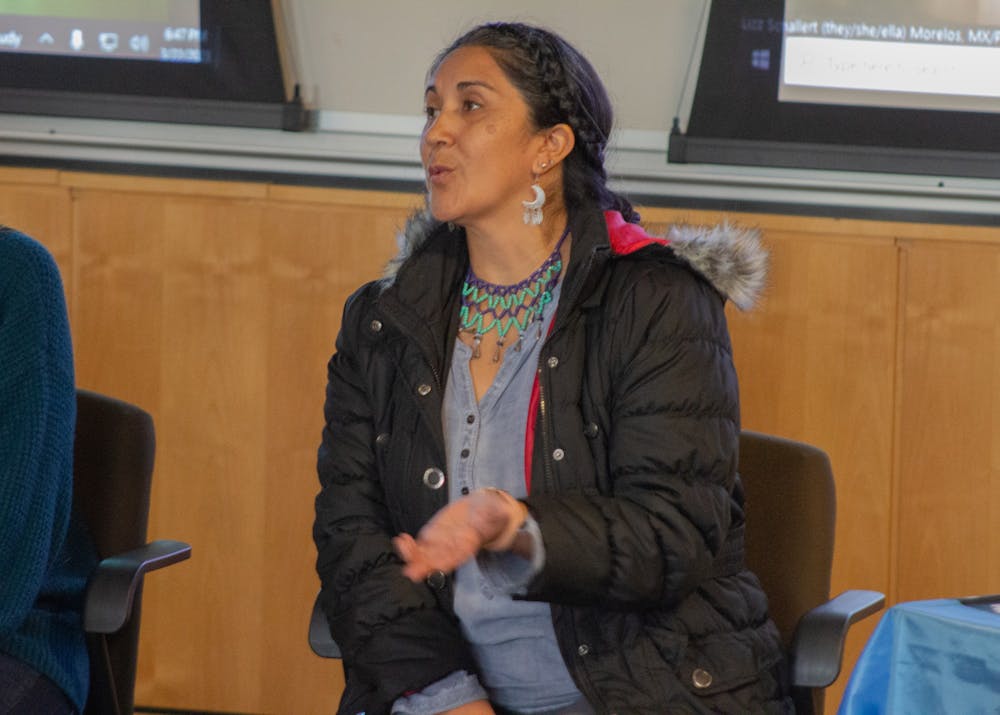
“And with that self-assured identity, then they’re able to present themselves in Chilean society without feeling embarrassed, without being afraid,” Calfuqueo Leifo said.
During the discussion, Kürüf Poblete, Calfuqueo Leifo and Baur encouraged UP students to question what they want to change and to get involved with local Indigenous activism. Students can visit the Moreau Center to learn more about how to become more involved in Portland social justice activism.
“Education has always had one direction and sometimes we’re able to change the course of that direction by having critical thought,” Calfuqueo Leifo said. “Sometimes I think that critical thought isn’t really appreciated or accepted by the larger society because it’s obviously more simple and easy to just follow what everybody else is doing.”
In addition to “Weichanmu: we are going to war," Baur has another documentary about the Mapuche language revitalization movement titled “Zuguleaiñ: hablaremos (we will speak).” Both documentaries are available to watch on YouTube.
Sydney Gannon is a reporter for The Beacon. They can be reached at gannon24@up.edu.



